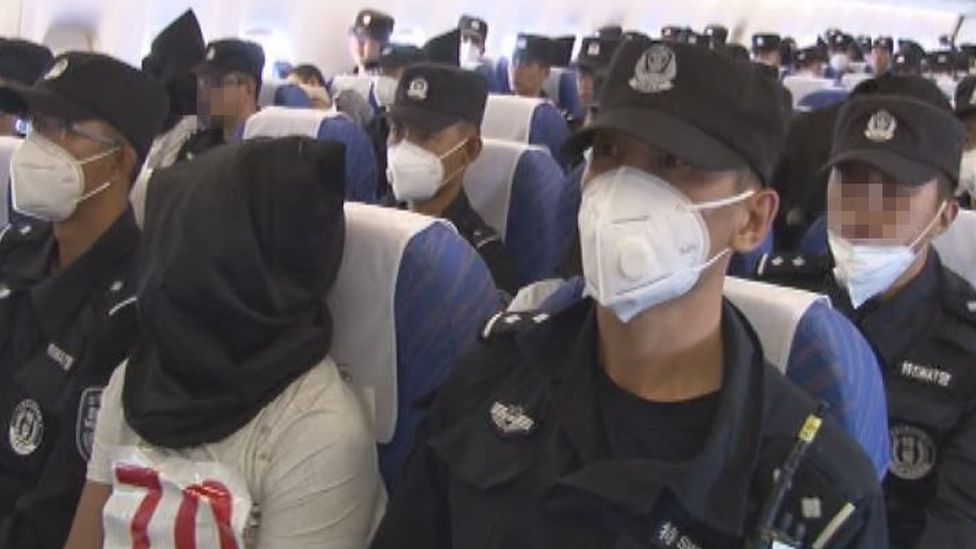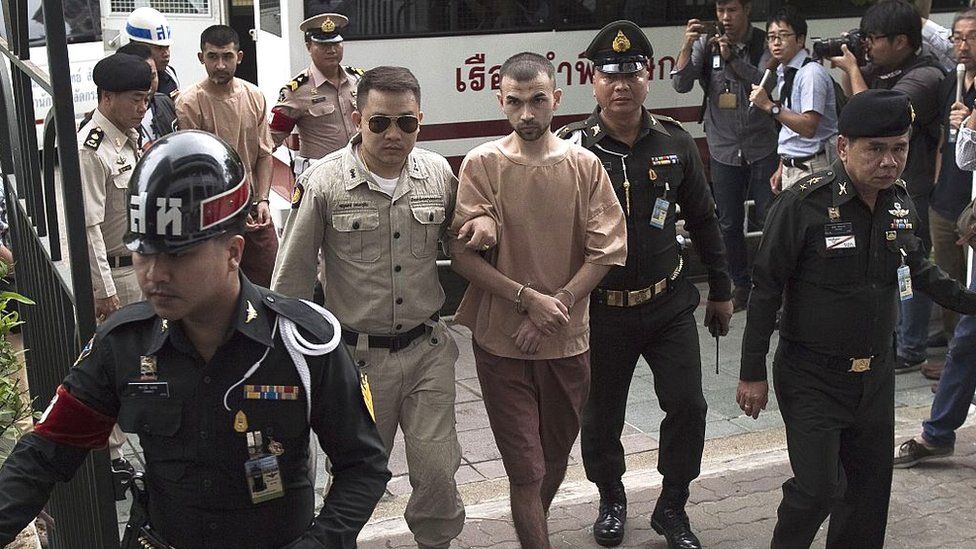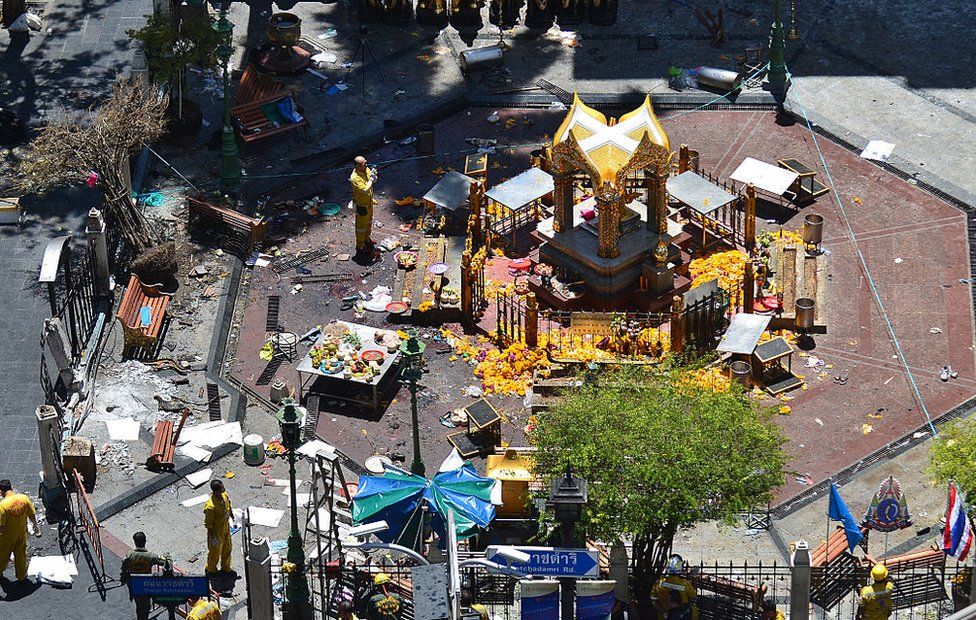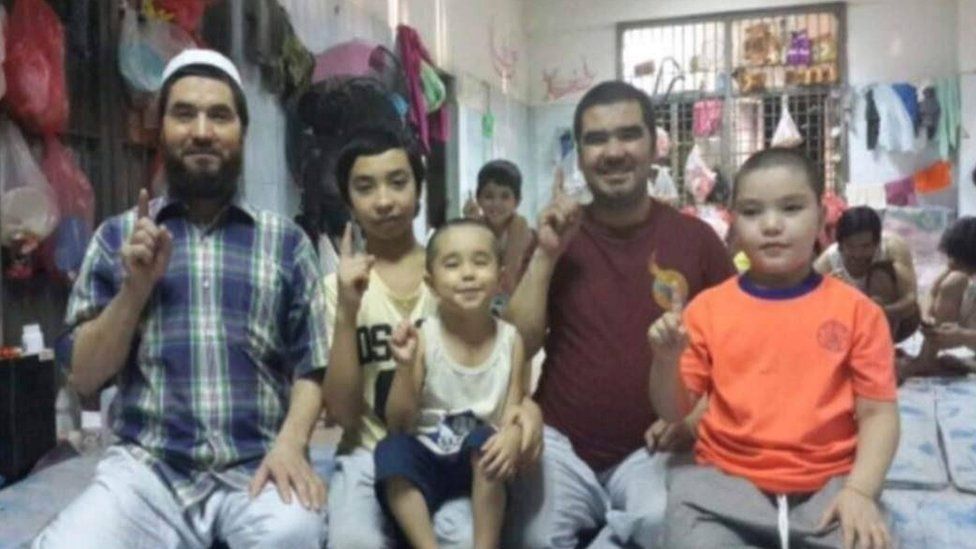The death of a 49-year-old Uyghur asylum seeker in Thailand has prompted rights organizations to call for the release of 50 Uyghur men who have been held in detention for nine years.
At the Immigration Detention Center in Bangkok, where he was being held, Aziz Abdullah passed away after collapsing.
In 2013, he was one of more than 350 Uyghur asylum seekers who fled western China's Xinjiang and were detained in Thailand.
China denies committing crimes against humanity against Uyghur Muslims and other minorities in Xinjiang, where human rights organizations estimate that more than a million people have recently been detained in a vast network of facilities the government refers to as "re-education camps.".
Aziz Abdullah, an Islamic leader in a remote region of southwest Xinjiang, traveled to Thailand in late 2013 with his wife, who was pregnant, his brother, and seven kids.
He had reportedly been seriously ill for more than three weeks, but according to activists in contact with detainees at the Immigration Detention Center, the Thai government had withheld medical attention until he passed out.
The World Uyghur Congress' Refugees Center's director, Polat Sayim, who is based in Australia, claims that the man could not eat because he was coughing up blood and vomiting it.
He was examined by a doctor at the IDC, who concluded that he wasn't actually ill and that his condition was normal. " .
After collapsing, he was finally taken to the hospital, but he was later declared dead. Lung infection is listed as the cause of death on the death certificate the hospital issued.

According to activists, his group was stopped in southern Thailand while trying to travel to Malaysia and ultimately Turkey.
In order to avoid being sent back to China, the majority of Uyghurs at the time pretended to be Turks, and Turkey was granting some of them citizenship. Early in July 2015, 173 of them, including Aziz Abdullah's wife and kids, were permitted to fly to Turkey by the Thai authorities.
China, on the other hand, strongly disagreed with this and accused Turkey of "conniving in illegal immigration activities" and interfering in a bilateral dispute.
In addition, the Thai government had permitted Chinese embassy representatives to visit and interview the asylum seekers. On July 8, 2015, Thailand forcibly repatriated at least 109 Uyghur men, placing them on a plane bound for China while handcuffed and hooded, in defiance of pleas from the UNHCR and several governments.
The brother of Aziz Abdullah was among them.
They were referred to by Chinese state media as being part of gangs that smuggled people, with some of them being charged with terrorist activity. Nothing is known about what happened to the men after they arrived in China.
The Chinese had requested the return of all Uyghurs, but only some had been sent, according to the Thai government, which defended its choice.
Twenty people were killed and numerous others were injured when a powerful bomb exploded at a shrine in the heart of Bangkok six weeks later. The evidence that later surfaced pointed to Uyghur militant groups as the likely perpetrators, despite the Thai government's insistence that it was the result of competition among people-smuggling organizations.
Two Uyghur men were arrested and charged with the bombing, but one of them, who adamantly denies the charges against him, might simply have been another asylum seeker who was apprehended by Thai police during a raid on a home believed to have been used by the bomb-makers.
After being detained for more than eight years, their trial has been repeatedly delayed; the Thai government appears to be taking its time with it, and the two men are still being held without charge.

Up until about a year ago, the remaining 50 or so Uyghur detainees were being housed in prisons spread throughout Thailand. However, after three of them managed to flee, they were all transferred to the notoriously jam-packed Immigration Detention Center in Bangkok.
According to activists working to aid them, the Uyghurs' living conditions are poor and they have little contact with the outside world and are kept apart from one another.
"It is even worse than regular Thai prisons," says Chalida Tacharoensuk, from the People's Empowerment Foundation, which has been pushing for better treatment of the Uyghurs.
It's crowded to the brim. There is not enough food, and what is offered is unhealthy. Muslims who are detained cannot eat halal food. The drinks are not clean either - they have to drink tap water. Health care is extremely limited. If they get sick, they only get pain-killers or similar medications. ".
Human Rights Watch's Phil Robertson stated: "This death is an entirely predictable result of a Thai policy decision to lock these Uyghurs away and, essentially, throw away the key.
"Clearly, the health effects of lengthy detention in overcrowded, filthy immigration cells with completely inadequate healthcare and nutrition were not considered. ".

The BBC tried calling a spokesman for the Bangkok IDC but was unable to get a response. The Thai police had no further comment.
The UNHCR says it has been allowed no access to the detainees. The Thai National Human Rights Commission has also been seeking permission to visit the Uyghurs in the IDC for several months.
It was finally given a date this month, and will go in later this week.
The Thai government has promised to work with the UN to improve the screening and treatment of the tens of thousands of refugees and asylum-seekers who are inside the country, but this has yet to bring any significant improvements to conditions inside the Bangkok IDC.
Campaigners believe the Uyghurs would be very likely to get third country resettlement if Thailand was willing to release them. But, according to a well-placed Thai source, the government's concern over upsetting China is too great.
Aziz Abdullah's body was eventually released to members of the Thai Muslim community, and he was buried in a cemetery at a mosque close to the Chao Phraya River in central Bangkok.







